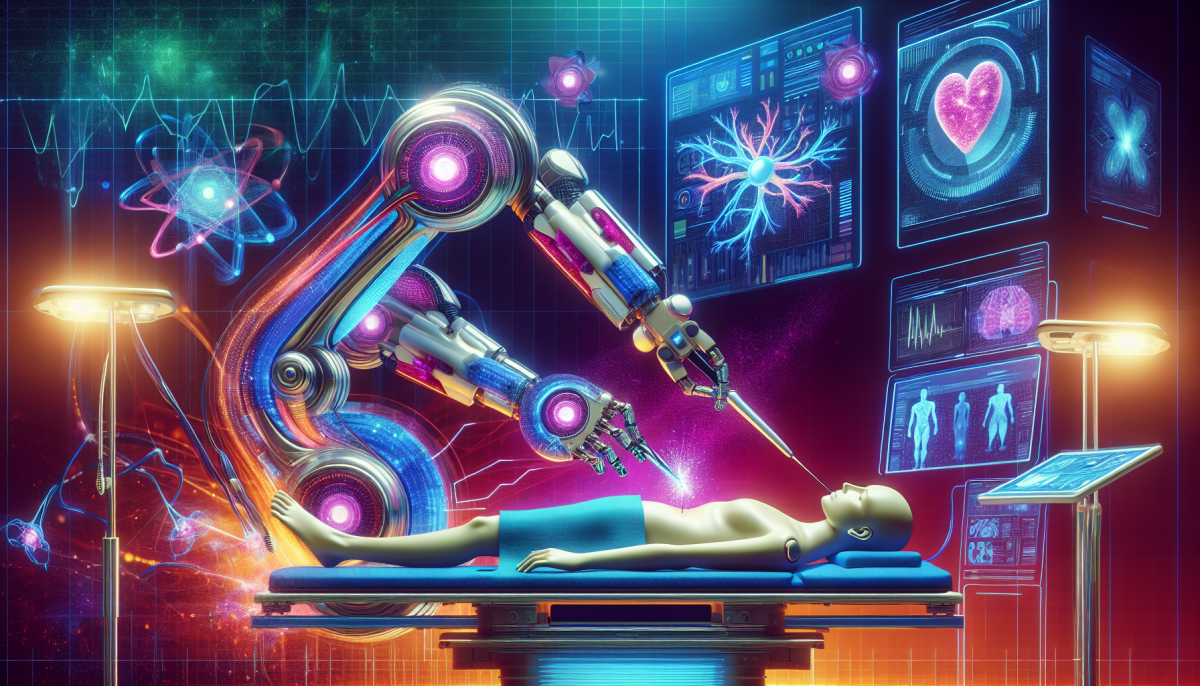The role of AI in medicine is expanding rapidly, and it’s exciting to see how it’s changing the landscape of healthcare. From diagnosing diseases to predicting patient outcomes, AI is becoming a helpful ally for doctors and patients alike. Imagine a world where computers can analyze thousands of medical images in seconds to spot issues that might take a human a lot longer to detect. That’s exactly what’s happening right now!
One of the big benefits of AI is its ability to learn from vast amounts of data. It can sift through electronic health records, genetic information, and even patient histories to help identify patterns. This not only aids in better diagnosis but also tailors treatment options to individual patients, making healthcare more personalized than ever before. Who doesn’t want a treatment plan that fits them perfectly?
AI chatbots and virtual health assistants are also making healthcare more accessible. They can answer common medical queries, remind you about medications, and even help book appointments, all from the comfort of your home. This sort of support can be a game changer, especially for those who need immediate assistance or have mobility challenges.
Lastly, let’s talk about predictive analytics. By analyzing data from various sources, AI can help predict potential health problems before they arise. This means proactive care rather than reactive. Imagine catching an issue before it becomes a serious problem; that’s the power of AI in medicine!
Benefits of AI for Patients and Doctors
AI is changing the game for both patients and doctors in ways that are super exciting! For patients, one of the major benefits is having quicker access to information. Imagine being able to chat with an AI about your symptoms and getting advice almost instantly. This can help ease your mind before you even head to the doctor. Plus, AI tools can help remind you about appointments or medication schedules, making it easier to take control of your health.
For doctors, AI takes a lot of the guesswork out of diagnosing. With advanced algorithms, AI can analyze medical data (like lab results and imaging) to highlight patterns and suggest possible conditions. This means doctors can make faster decisions, which often leads to better outcomes for patients. It’s not about replacing doctors but rather enhancing their ability to provide top-notch care.
Another perk is personalized treatment plans. AI systems can sift through tons of patient information and medical history to tailor treatments to individual needs. This means that two patients with similar conditions might receive different treatments based on their unique profiles. It’s all about finding what works best for you.
Lastly, AI can help streamline administrative tasks. From scheduling appointments to processing insurance claims, AI can handle the paperwork, giving doctors more time to focus on what they do best—caring for patients. It's like having an extra set of hands in the office.
Challenges Facing AI in Healthcare
AI is making waves in healthcare, but there are some bumps in the road that we should talk about. First off, data privacy is a huge concern. With sensitive patient information being processed, it's crucial that AI systems handle data responsibly. If people feel their information isn't safe, they might hesitate to use AI-based services.
Another challenge is the need for robust and diverse data. AI thrives on data, but if the information used to train these systems isn’t varied enough, it might not perform well across different populations. This can lead to biases, which means certain groups might not get the best care. It’s super important that AI tools are designed with everyone in mind.
Integration with existing healthcare systems is another hurdle. Many hospitals and clinics use outdated technology, and introducing AI can feel like a big leap. The transition can be tricky, and staff may need additional training to be comfortable using new tools. If the integration is clunky, it can slow down the benefits that AI can bring.
Lastly, there's the matter of trust. Patients and providers need to feel confident in AI recommendations. This involves clear communication about how AI systems work and ensuring that human oversight remains a big part of the decision-making process. Building that trust takes time and transparency.
The Future: What’s Next for AI?
The future of AI in healthcare is exciting and full of possibilities. With technology advancing at a rapid pace, we can expect AI to play an even bigger role in how we approach patient care. Imagine a world where AI helps doctors diagnose conditions with pinpoint accuracy or streamlines administrative tasks, allowing healthcare professionals to spend more time with patients. That’s not just a dream; it’s on the horizon.
One of the most promising areas is personalized medicine. With AI analyzing vast amounts of data, it can tailor treatment plans based on a patient's unique genetic makeup and lifestyle. This means more effective treatments with fewer side effects. It’s like having a plan designed just for you, making healthcare more effective and efficient.
AI is also set to improve the management of chronic diseases. Smart devices that monitor health metrics in real-time can alert both patients and doctors to potential issues before they become serious. This proactive approach might just change how we think about health and wellness, focusing on prevention and early intervention rather than just reacting to problems.
And let’s not forget about robot-assisted surgeries. These advanced systems can enhance precision and minimize recovery times. As these technologies become more common, we could see surgeries that are safer and more effective than ever before, making a big difference in patient outcomes.



